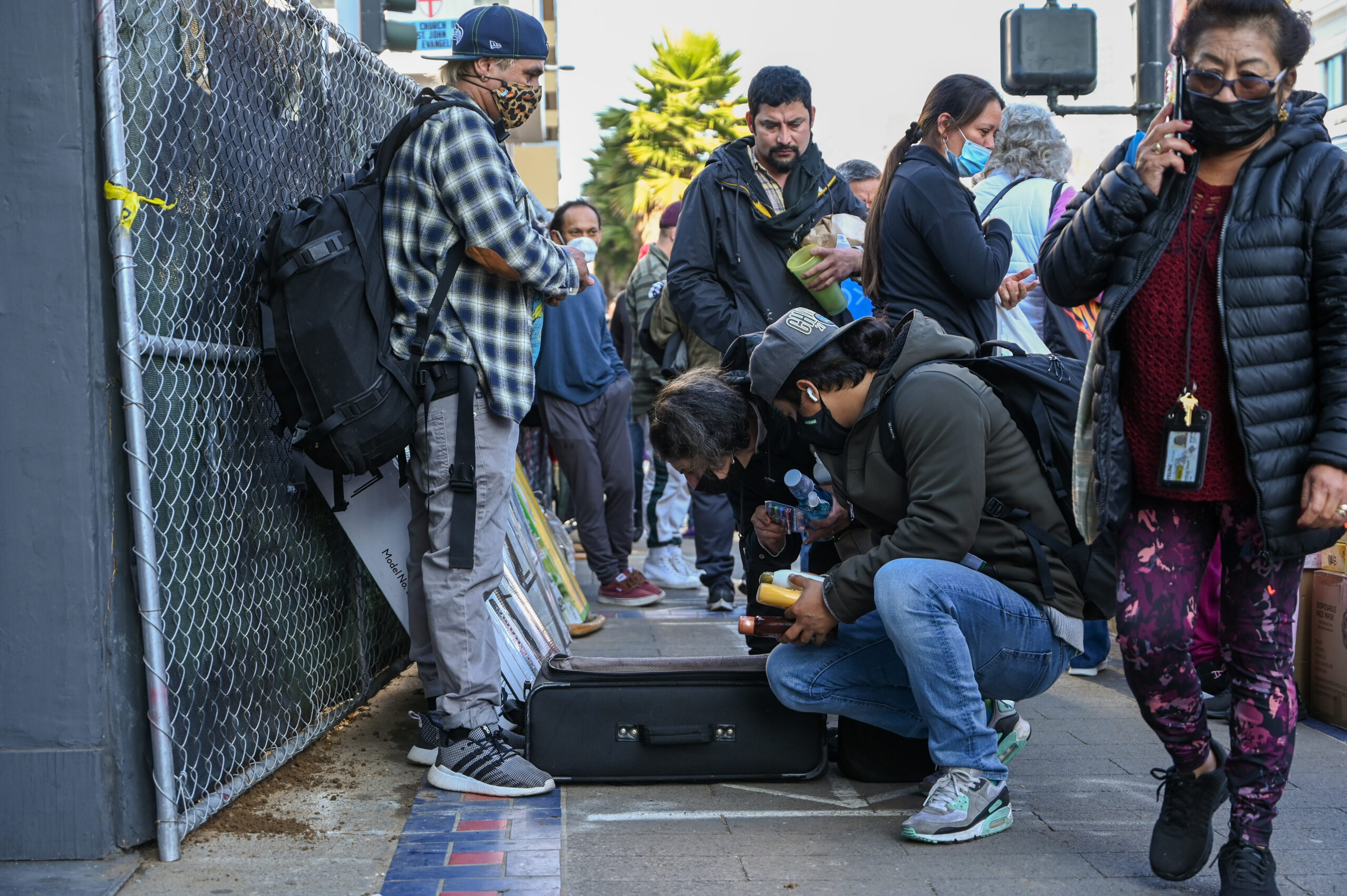Milagritos Lopez, or ‘Millie’ as she’s more commonly known, commutes every day from the city of Richmond to sell jewelry by the 24th St. BART Station. After immigrating from Peru to Los Angeles in 1993, Lopez moved to the Bay Area over a decade ago. She started her jewelry business in 2015 and says she has always done everything on the up-and-up, paying state business taxes every three months along with an annual $260 permitting fee to the San Francisco Police Department.
But Millie said that the SFPD permit has been a waste of money because officers are unwilling to enforce the rules that come with it. Unpermitted vendors sell similar products within two blocks of her space, she says, in clear violation of peddler permit regulations.
Now, Mission vendors fear that recent legislation focused on prohibiting unpermitted street peddling in the Tenderloin will drive even more unlicensed sellers to the Mission.
“They’re going to close up UN Plaza and [vendors] are going to move right down the street and put their wares on Mission Street,” said Santiago Lerma, a legislative aide for Supervisor Hillary Ronen, who represents the Mission. “We have to do something, I’m getting small business owners crying because there are people selling the same products out in front of their window for 50% cheaper.”
In August, Supervisor Aaron Peskin introduced legislation requiring tighter enforcement of rules, including tax collection and health and safety regulations, for vendors along the city’s waterfront. The new proposal, authored by Supervisor Ahsha Safai and introduced by Mayor London Breed last week, expands on the August legislation to adopt city-wide regulations for street vendors and shift permitting responsibilities from the police to the Department of Public Works.
The new legislation would introduce “exclusion zones” that will primarily focus on prohibiting the sale of goods at UN Plaza. It also enables the director of DPW to expand limits on street vending for reasons related to public health, safety, and welfare in accordance with a state law that decriminalized street vending in 2018.
In November, following mass thefts at luxury stores in Union Square, SFPD set up physical barriers in UN Plaza where people used to sell goods–partly in response to concerns that stolen items were immediately being sold on nearby streets. But the barriers only resulted in peddlers moving across the street or to the end of the block.
Like many cities, San Francisco has long struggled to organize street vendors. In 2019, Ronen’s office worked with community members to help organize a legal flea market in the Mission, sanctioning a section of the nearby Julian Street for vendors to sell their goods. The plan came as a response to an overwhelming number of unpermitted peddlers who were showing up next to a licensed flea market known as La Pulgita.
But Lerma said that despite his staff’s efforts, the market became unmanageable.
“More vendors came out and started to flood into the streets,” Lerma said. “It just grew and grew. It was so staff–intensive and eventually became untenable.”
Gaby Ramos, a director for the La Pulgita weekend flea market, said that unpermitted vendors on the sidewalks create accessibility issues for her customers–and she suspects the market’s $25 fee and strict no-drug policy are dissuading unpermitted vendors from signing up.
“The people on the streets are welcome to come to our flea market,” Ramos said. “A lot of people that sell in the streets just don't want to pay and they just don't want to follow the rules.”
Lerma said that Ronen’s office will be actively working with Breed and Safai to help refine the permitting process with the interest of well-intentioned vendors in mind.
“A lot of [street vendors] are monolingual, they’re immigrants that don't really have a lot of knowledge of how to navigate city government,” Lerma said. “We're not criminalizing folks that are legitimately just trying to make a living. But that part is going to be problematic given the nature of what people are selling … There’s a lot of stuff people don't necessarily have a receipt for.”
Miguel Guerrero, an unpermitted watch seller on Mission Street, said that if the city was to boot him from his spot on 14th street he would ultimately find somewhere else to sell his goods. Guerrero said he buys watches from swap meets or pawn shops and refurbishes them, and he hopes to one day open his own brick and mortar store.
Guerrero began selling watches on the weekends over two years ago to supplement his income as a full-time truck driver. He said his watches make him about $130 a day, but any additional overhead — such as permitting fees and taxes — would make it difficult to make ends meet.
“The cost of living in San Francisco is hard,” Guerrero said. “I'm just glad I'm able to make it, but I need a little extra and that's why I do this on the side.”
